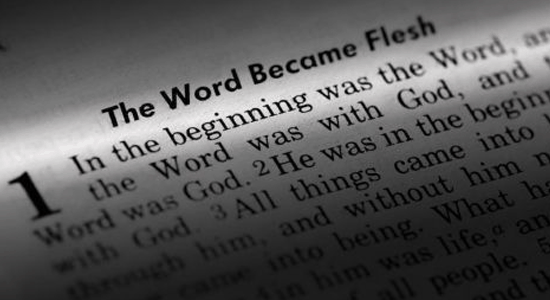
To purchase the entire DVD set of the Summit Lecture Series, visit summit.org.
I began to see that the New Testament is actually trustworthy. In fact, today, it says the same things that it has always said. As hard as I tried, I could not come up with any model of uniform corruption for the New Testament.
The truth is that the New Testament was spread so rapidly throughout the region that in order for it to be uniformly corrupted, someone would have to re-collect all the books of the New Testament, change them and then redistribute them. And there was no one in a position to do that at that time. In fact, when the New Testament was first being spread throughout the world, to gather as a group of Christians was largely illegal at that time, under the Diocletian Edict.
Before learning about this, it was real easy for me to argue with Christians that their contemporary versions of the Bible was corrupt and mistranslated. But, once I started looking for details and more and more historical support for that argument, I realized it was full of holes.
So, okay… it’s trustworthy.
But, I still held that nowhere in its pages did Jesus Christ claim to be God. I believed as I was told – that He claimed only to be a man and a prophet.
Then my friend, David, and I went into this issue head-first. I can’t express accurately just how awe-inspiring, radical and amazing the incarnation of Christ truly is. The fact that God would choose to become a man is incomprehensible. Why in the world would He do that? How much did He have to give up? What was more humiliating for Him: dying naked on the cross or becoming a man to begin with?
As a Muslim, I was taught that God could never compromise His majesty and Lordship in such a manner as to become the Son of a carpenter and a young girl. Christ’s birth, life and death made no sense, if He were God. In fact, to Muslims, it is so obviously wrong simply due to the degree of humiliation God must endure for this to be true.
Therefore, Jesus is THE issue to deal with.
So, I looked at my friend and asked, “Can we know that Jesus claim to be God? I don’t think so. He never did throughout the New Testament.”
Now, the first place where any Christian goes when investigating the deity of Christ is the Gospel of John. The book’s prologue (John 1:1-18) makes it very clear:
In the beginning was the Word, and the Word was with God, and the Word was God… All things were made through Him, and without Him nothing was made that was made… And the Word became flesh and dwelt among us, and we beheld His glory, the glory as of the only begotten of the Father, full of grace and truth.
As a Muslim, my only response was “This isn’t Jesus, Himself talking. It’s the prologue written by John, the author. Plus, John didn’t write his Gospel for some 50-70 years after Jesus’ death. I wanted to read something saying that Jesus was God from an earlier text. The gospel of Mark was written around 70 AD. My thinking was that if it’s not in the first Gospel written, then the idea was somehow created somewhere between the writings of Mark and John. Because, if it were true, but not included in the earliest Gospel, it would make no sense that this would be a fact that was left out.
But, as I studied and studied Mark’s Gospel, I learned that when you read it through the correct lens (meaning a person who understands first century Jewish thought) then you begin to see what Mark is saying about Jesus. For example, Mark 14:62 tells us in Jesus’ response to the Sanhedrin, specifically to the high priest – the person who was presiding over Israel – when he asked Jesus who He is
Jesus said, “I am. And you will see the Son of Man sitting at the right hand of the Power, and coming with the clouds of heaven.”
Then the high priest tore his clothes and said, “What further need do we have of witnesses? You have heard the blasphemy!” (Mark 14:62-64)
Now, when the high priest tore his clothes, this was no small, subtle moment. He was totally and completely distraught at the blasphemy that he just heard – that Jesus would say something about His own identity that compromises the identity of the one true God.
When Jesus said, “I am” and when He called Himself “the Son of Man” and quoted the prophet Daniel saying that he would be “coming with the clouds of heaven”, all in describing Himself, Jesus was indeed saying that He was God.